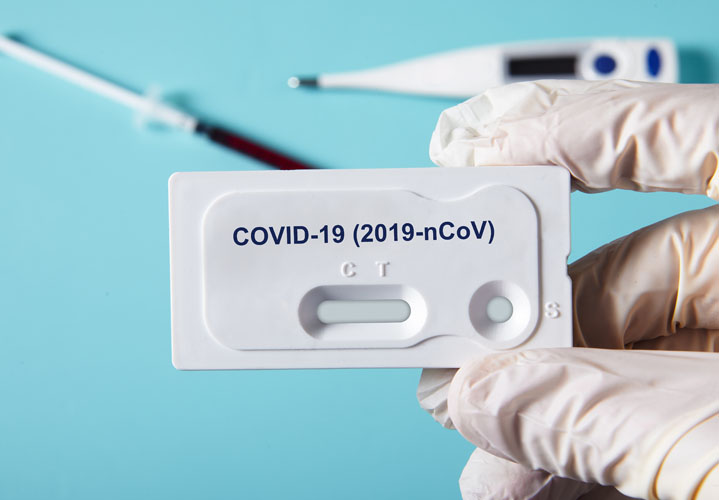The Competition and Markets Authority (CMA) has recently launched an investigation into a COVID-19 test provider to establish whether there has been a breach of consumer protection law. It has also contacted 19 other test providers regarding the false advertising of tests at very low prices - either when they are not available at that price or include hidden conditions - warning of future actions if firms do not address the issues raised.
On 3 September 2021, the CMA announced the launch of its investigation into Expert Medicals, one of the largest polymerase chain reaction (PCR) test providers, following numerous complaints. Such complaints include that the tests and results were not provided in a timely manner, or at all - that customer complaints were not responded to; and that refunds were refused.
The investigation will try to establish whether:
- Expert Medicals provided the tests and results on time if at all
- Whether consumers are able to contact the company if/when problems arose and whether there are any particular difficulties or obstacles in doing so
- Whether Expert Medical’s terms and conditions unfairly limit or exclude liability
- Whether consumers are able to cancel their orders and/or obtain refunds where tests are not provided or are late
Chronology of events
- At the beginning of August 2021, the Secretary of State for Health and Social Care requested that the CMA look into issues in connection with PCR travel tests.
- On 23 August, the Department for Health and Social Care (DHSC) announced that it will carry out spot checks to ensure that PCR test providers listed on GOV.UK are following the rules and meeting transparency standards, as well as introducing a new "two-strike policy" in relation to misleading information, which could lead to providers being removed from the GOV.UK list. The DHSC stated that it would send a first warning to 82 PCR test providers in relation to misleading pricing information.
- The CMA then announced on 25 August that, as part of its review of the PCR testing market, it had sent an open letter to PCR test providers warning them of how they may be breaching consumer protection law and what to do to ensure compliance. The types of harmful conduct CMA identified included:
- So-called "bait" advertising, i.e. advertising cheap PCR tests (including on GOV.UK) which are only available in very small quantities or not available at all
- "Drip-pricing", i.e. advertising up-front prices for PCR tests which do not include additional charges that everyone must pay
- Failing to disclose important caveats upfront; and terms and conditions which exclude statutory rights
- Problems with refunds and cancellations
- On 3 September, the CMA launched its investigation into Expert Medicals.
- On 10 September, the CMA published its advice to the Secretary of State on the PCR travel test market, concluding that competition alone will not deliver the right outcomes for consumers, even when backed by ex post enforcement of consumer law; and that a combination of regulation and monitoring was also required. The CMA’s recommendations for the Government to take include DHSC enhancing the basic requirements for retail test providers to be/remain included on the GOV.UK list.
Next steps and what is on the horizon
Expert Medicals’ test has now been removed from the UK's list of test providers who claim they meet minimum government standards for COVID-19 testing. This should act as a warning to other PCR test providers that failing to ensure compliance may result in their business being investigated by the CMA and their removal from the approved list.
The CMA currently has a wide range of powers and its consumer protection law enforcement includes taking businesses to court to stop illegal behaviour and seek compensation for consumers; and potentially bring criminal prosecutions. However, a recent government proposal, which is currently subject to consultation, is also suggesting to further strengthen the CMA’s civil consumer enforcement powers, giving the CMA the power to:
- Decide whether a business is, has or is likely to infringe certain consumer laws
- If so, decide whether to direct the business to bring infringements to an end or to stop future infringements, and where appropriate, order compensation or other redress for the victims of the breach
- Where appropriate, order the business to pay a financial penalty
For any questions with regard to any issues raised in this article, please contact us.

 Gustaf Duhs
Gustaf Duhs Jessica Gregson
Jessica Gregson